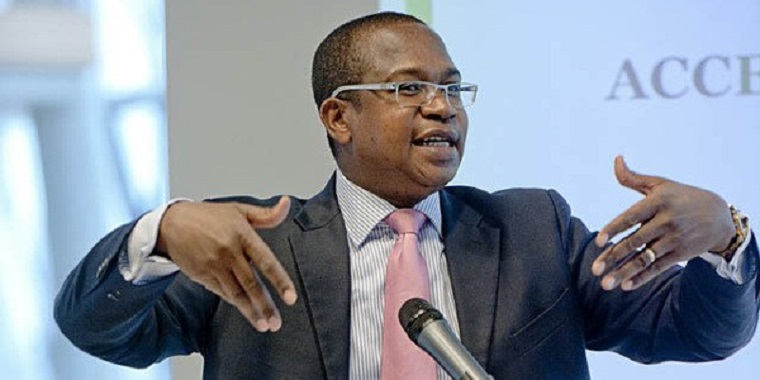 Zimbabwe Finance Minister Mthuli Ncube laid out a plan to end the nation’s two-decade stand-off with international creditors and dismissed rapidly accelerating inflation as “wage compression”.
Zimbabwe Finance Minister Mthuli Ncube laid out a plan to end the nation’s two-decade stand-off with international creditors and dismissed rapidly accelerating inflation as “wage compression”.
Ncube, 55, also said the country would establish a Monetary Policy Committee within a month that will cut interest rates, begin selling bonds with maturities of as long as 30 years, and proceed with a plan to privatize everything from state telecommunications companies to timber plantations.
By settling arrears with multilateral lenders, the nation hopes to access the finance it needs to revive the economy.
Ncube, a Cambridge-university trained economics professor, has reined in state spending and boosted tax revenue.
Still, the introduction of a new currency in June, accompanied by a ban on the use of the dollar, has seen the rapid erosion of spending power with the Zimbabwe dollar now trading at almost 10 to the dollar after its predecessor, a quasi-currency known as bond notes, was officially said to be at parity as recently as February.
Now many of the country’s 400 000 civil servants, who form the bulk of the middle class, are earning less than the $1.90 a day defined by the World Bank as the line below which people are living in extreme poverty.
The measures, which Ncube conceded were painful for citizens, are necessary if the country is to regain a sound economic footing, he said.
“We can declare victory on the fiscal front,” Ncube said in an interview in the capital, Harare, across the road from the colonial-era government headquarters. “Everything that I say, I implement.”
Under a debt-settlement plan, which Ncube said he’s discussing with creditors, Zimbabwe would complete an International Monetary Fund Staff-Monitored Program in January. It would then:
- Borrow the $1.9 billion it owes the World Bank and the African Development Bank from the Group of Seven industrialized nations
- Immediately win $1 billion in relief from the two lenders, which would be paid back to the G7 creditors
- Expect so-called Paris Club creditors, to whom it owes $3.8 billion in bilateral debt, to take a “haircut.”
Zimbabwe’s total external debt is $9 billion, which includes commercial loans.
IMF Resident Representative Patrick Imam said conditions are not yet in place for the fund to provide financial support for Zimbabwe. The IMF’s SMP is being used to support economic and governance reforms in the country.
“Zimbabwe needs to build a track record to prove that it can implement reforms to tackle deep-rooted problems, as the hurdle rate for a financially supported program is high,” Imam said in an emailed response to questions.
In order to regularize the nation’s monetary system, Ncube said the authorities will establish a nine-member Monetary Policy Committee within a month that will reduce interest rates from 50%.
Within 12 to 18 months, the nation plans to sell domestic bonds with a duration of as long as 30 years to fund infrastructure. In time, it will approach international markets, he said.
While Ncube has won praise for imposing financial discipline on a notoriously profligate government, his statements on inflation strained the credulity of some analysts.
Ncube said annual inflation data showed that wages haven’t adjusted quickly enough to the new exchange rate, and not that the country is heading for hyperinflation.
“What people are feeling is really wage compression,” he said. “Prices adjusted instantly to the exchange rate, but wages have been too slow to catch up with the adjustment. The issue is about wage adjustment and I’m a big champion of wage adjustment.”
The Finance Minister is talking “economic gobbledygook,” said Steve H. Hanke, a professor of applied economics at the Johns Hopkins University in Baltimore. “By my measure, Zimbabwe’s inflation is the second highest in the world at 570%.”
Even his supporters say that if his measures work, there is a lot of hardship in store for Zimbabweans.
“This situation is something which can persist for anything between three to five years of pain,” said Lloyd Mlotshwa, head of equities at IH Securities in Zimbabwe, who praised the finance minister for raising fuel and power prices that were previously subsidized by the government.
“What can shorten this period is if there are funds poured into plug the gap.”- Bloomberg
(167 VIEWS)






wat we are receiving from the smart guy are economical jagons some of which can not be implemented others even if we want to cannot suit our situation also another thing are hope on promises like to pay the 9 billion external debt while we dont have the money then expecting to borrow again which is kind of a gambling. Mr Minister sir can you be real